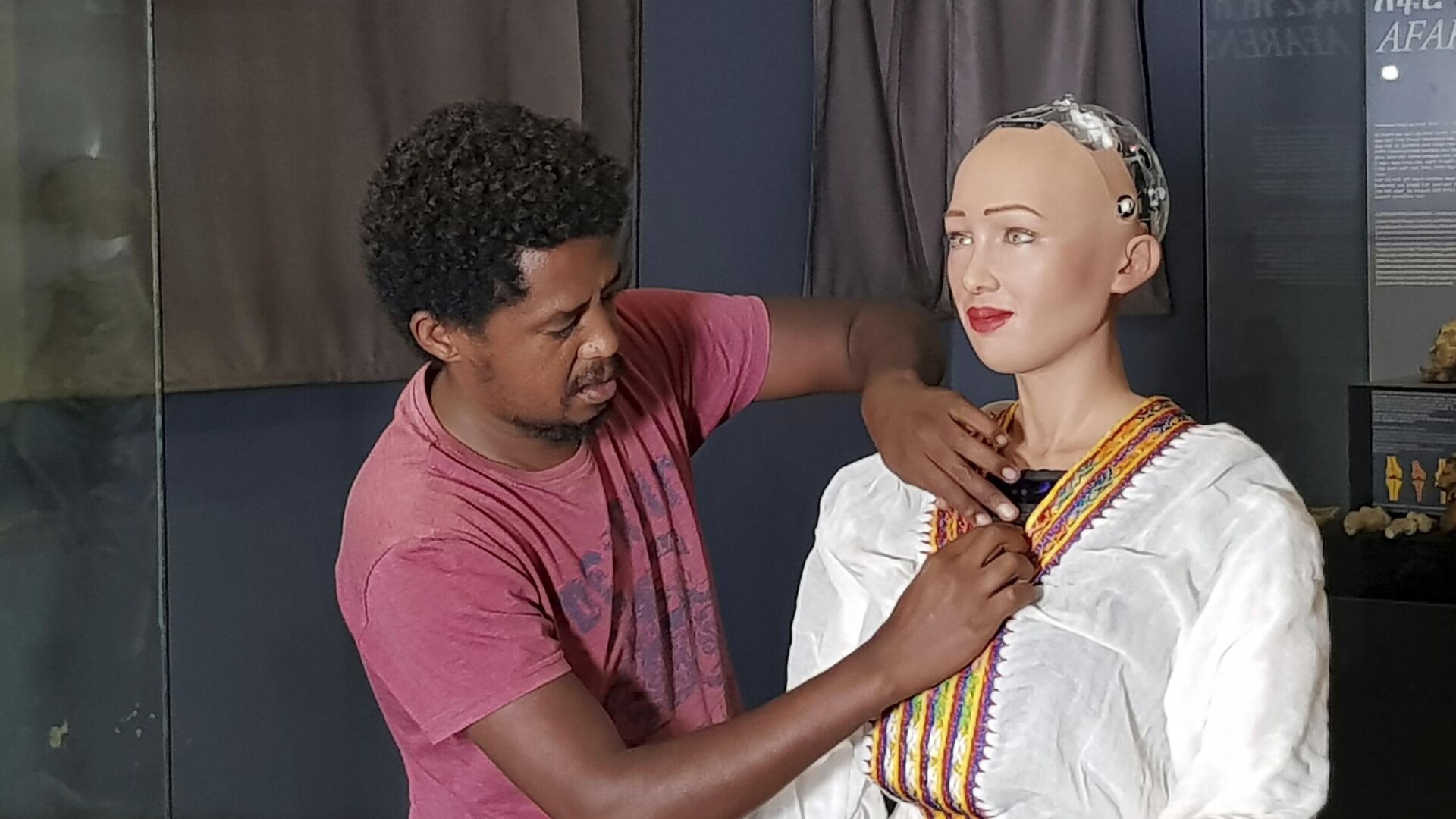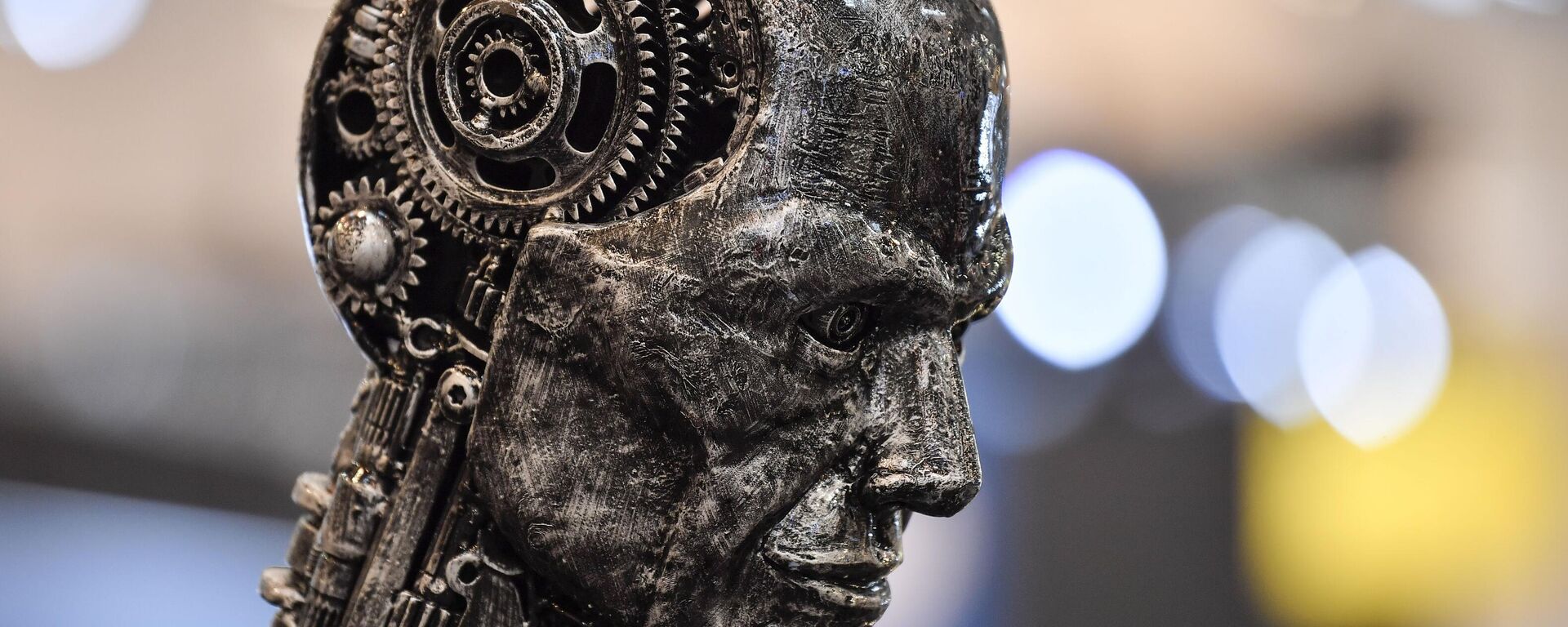https://en.sputniknews.africa/20240319/artificial-intelligence-week-in-togo-empowering-africa-through-ai-1065634615.html
Artificial Intelligence Week in Togo: Empowering Africa Through AI
Artificial Intelligence Week in Togo: Empowering Africa Through AI
Sputnik Africa
On March 19-24, Togo hosts the first Artificial Intelligence Week. The event aims to help the country better prepare for the adoption of AI. Togo is currently... 19.03.2024, Sputnik Africa
2024-03-19T17:35+0100
2024-03-19T17:35+0100
2024-03-19T17:35+0100
togo
artificial intelligence (ai)
technology
digital technology
information and communication technology
cooperation
africa in details
africa insight
sub-saharan africa
https://cdn1.img.sputniknews.africa/img/07e7/0c/1f/1064394129_0:0:3144:1770_1920x0_80_0_0_807494d4c816592d118ca854155f3ed8.jpg
As Togo launches its inaugural Artificial Intelligence Week, held from March 19 to 24, attention is turning to the significance of such events for the African continent. Sputnik Africa recently caught up with an African expert to delve into the realm of artificial intelligence (AI) in Africa, with a particular focus on Togo's burgeoning AI initiatives.In Africa, there's remarkable talent and capability in AI. By fostering collaboration and unity across African nations in the realm of artificial intelligence, the continent can realize its potential to make substantial contributions not only within Africa but on the global stage as well, Tsepo Mokau, a data analyst at the South African Banking Risk Information Center (SABRIC), told Sputnik Africa.According to him, the time for AI is now, and Africa is poised to lead and significantly influence the AI landscape. Noting that Togo is currently ranked 23rd in Africa and 145th globally for AI readiness, Mokau highlighted some of the factors that contribute to a country being ready for AI.He said that infrastructure, robust telecommunications, and internet connectivity lay the groundwork for AI implementation. Adequate coverage and high-speed bandwidth are essential to effectively deploy AI solutions. Collaboration between the private sector and governments is critical to addressing these limitations, he added. As internet access improves, even the most remote regions of Africa will soon benefit from AI solutions, Mokau said. For example, South Africa, where he currently works and lives, has an internet penetration rate of more than 90%, suggesting that all citizens will soon have access to AI advances.The data analyst stressed that Africa stands ready to embrace AI, aligning with global advancements in this field. He noted that collaboration and integration into the global AI landscape are imperative for Africa to drive innovation and progress. He also noted that infrastructure challenges, such as limited access to certain areas, can be mitigated through AI applications like drones for efficient transportation of essentials like blood samples and medical supplies.International collaboration and local investment are vital for propelling AI innovations, especially in remote regions, Mokau added.In fostering partnerships, equality and knowledge exchange are paramount, noted Mokau. If Russia, for example, leads in generative AI, collaborative endeavors should aim to empower both parties through technology transfer and training.According to him, the focus should not solely be on technology provision but on extending learning opportunities to local talent, ensuring mutual growth and development. This synergistic relationship can create avenues for Russia to invest in Africa and enhance its technological capacities while fostering innovation and inclusivity.Speaking of the level of interest among African youth regarding AI and how they can actively participate in shaping the future of this technology, Mokau highlighted that African youth, constituting a significant demographic across the continent, exhibit a keen interest in AI.He argued that the youth are eager to contribute meaningfully to the AI landscape, highlighting a growing demand for practical involvement and solution-driven initiatives.Mokau concluded by saying that interest in AI transcends borders, presenting a collective opportunity for global collaboration and knowledge exchange.
https://en.sputniknews.africa/20240226/real-work-starts-now-zimbabwe-begins-construction-of-cutting-edge-zim-cyber-city-1065255305.html
https://en.sputniknews.africa/20231223/putins-analogy-of-ai-with-nuclear-true-ethical-development--use-crucial---african-minister-1064269793.html
togo
Sputnik Africa
feedback@sputniknews.com
+74956456601
MIA „Rossiya Segodnya“
2024
Muhammad Nooh Osman
https://cdn1.img.sputniknews.africa/img/07e7/04/0a/1058467512_0:0:1280:1280_100x100_80_0_0_ec723833bcbfcaed2e21952965ad99e4.jpg
Muhammad Nooh Osman
https://cdn1.img.sputniknews.africa/img/07e7/04/0a/1058467512_0:0:1280:1280_100x100_80_0_0_ec723833bcbfcaed2e21952965ad99e4.jpg
News
en_EN
Sputnik Africa
feedback@sputniknews.com
+74956456601
MIA „Rossiya Segodnya“
Sputnik Africa
feedback@sputniknews.com
+74956456601
MIA „Rossiya Segodnya“
Muhammad Nooh Osman
https://cdn1.img.sputniknews.africa/img/07e7/04/0a/1058467512_0:0:1280:1280_100x100_80_0_0_ec723833bcbfcaed2e21952965ad99e4.jpg
togo, artificial intelligence (ai), technology, digital technology , information and communication technology, cooperation, africa in details, africa insight
togo, artificial intelligence (ai), technology, digital technology , information and communication technology, cooperation, africa in details, africa insight
Artificial Intelligence Week in Togo: Empowering Africa Through AI
Muhammad Nooh Osman
Writer/Editor
On March 19-24, Togo hosts the first Artificial Intelligence Week. The event aims to help the country better prepare for the adoption of AI. Togo is currently ranked 23rd in Africa and 145th in the world in the Oxford Insights 2023 ranking of the most AI-ready countries.
As Togo launches its inaugural
Artificial Intelligence Week, held from March 19 to 24, attention is turning to the significance of such events for the African continent.
Sputnik Africa recently caught up with an African expert to delve into the realm of artificial intelligence (AI) in Africa, with a particular focus on Togo's burgeoning AI initiatives.
In Africa, there's remarkable talent and capability in AI. By fostering collaboration and unity across African nations in the realm of artificial intelligence, the continent can realize its potential to make substantial contributions not only within Africa but on the global stage as well, Tsepo Mokau, a data analyst at the South African Banking Risk Information Center (SABRIC), told Sputnik Africa.
According to him, the time for AI is now, and Africa is poised to lead and significantly influence the AI landscape. Noting that Togo is currently ranked 23rd in Africa and 145th globally for AI readiness, Mokau highlighted some of the factors that contribute to a country being ready for AI.
He said that infrastructure, robust
telecommunications, and internet connectivity lay the groundwork for AI implementation. Adequate coverage and high-speed bandwidth are essential to effectively deploy AI solutions.
"I think those are the main things that are needed for artificial intelligence to actually exist in any environment or in any country," Mokau, a national of Lesotho, said. "Currently, I think the biggest benefit can be internet penetration because we have a lot of people that are not residing within the cities or residing outside the cities, so they are at a disadvantage in harnessing the benefits of artificial intelligence."
Collaboration between the private sector and governments is critical to addressing these limitations, he added.
As internet access improves, even the most remote regions of Africa will soon benefit from AI solutions, Mokau said. For example, South Africa, where he currently works and lives, has an internet penetration rate of more than 90%, suggesting that all citizens will soon have access to
AI advances.
"I think we are ready, because we cannot say we do not have the minds or intelligence, we actually do have. And just those are limiting factors that are limiting the better artificial intelligence. But apart from that, I think we are ready," argued Mokau. "Very soon in less than five years time, I think, internet penetration to even the least developed countries in Africa will actually have the best penetration."
The data analyst stressed that Africa stands ready to embrace AI, aligning with global advancements in this field. He noted that collaboration and integration into the global AI landscape are imperative for Africa to
drive innovation and progress.
He also noted that infrastructure challenges, such as limited access to certain areas, can be mitigated through AI applications like drones for efficient transportation of essentials like blood samples and medical supplies.
"You do not have to invest in, like, paying millions of dollars for constructing a road or [building] an airport. This can be done within a short space of time. You need the internet. If the internet is there, why not deploy this!" the African data analyst stated.
International collaboration and local investment are vital for propelling AI innovations, especially in remote regions, Mokau added.
"Everybody in the world is actually moving towards the artificial intelligence. Therefore, Africa should not actually be treated in exile, separate from the world. Africans actually should be an equal partner into artificial intelligence," Mokau said "If something's happened in Russia, if something happening in America or something happening in China, why can it not happen in Africa?"
In fostering partnerships, equality and knowledge exchange are paramount, noted Mokau. If Russia, for example, leads in generative AI, collaborative endeavors should aim to empower both parties through technology transfer and training.
According to him, the focus should not solely be on technology provision but on extending learning opportunities to local talent, ensuring mutual growth and development. This synergistic relationship can create avenues for Russia to invest in Africa and enhance its technological capacities while fostering innovation and inclusivity.
Speaking of the level of interest among African youth regarding AI and how they can actively participate in shaping the future of this technology, Mokau highlighted that African youth, constituting a significant demographic across the continent, exhibit a keen interest in AI.
He argued that the youth are eager to contribute meaningfully to the AI landscape, highlighting a growing demand for practical involvement and solution-driven initiatives.
"I believe in practice of this [AI], there was high demand not just to be a user of artificial intelligence, but a producer," he said. "The youth are ready, the youth are looking for those opportunities."
Mokau concluded by saying that interest in AI transcends borders, presenting a collective opportunity for global collaboration and knowledge exchange.




